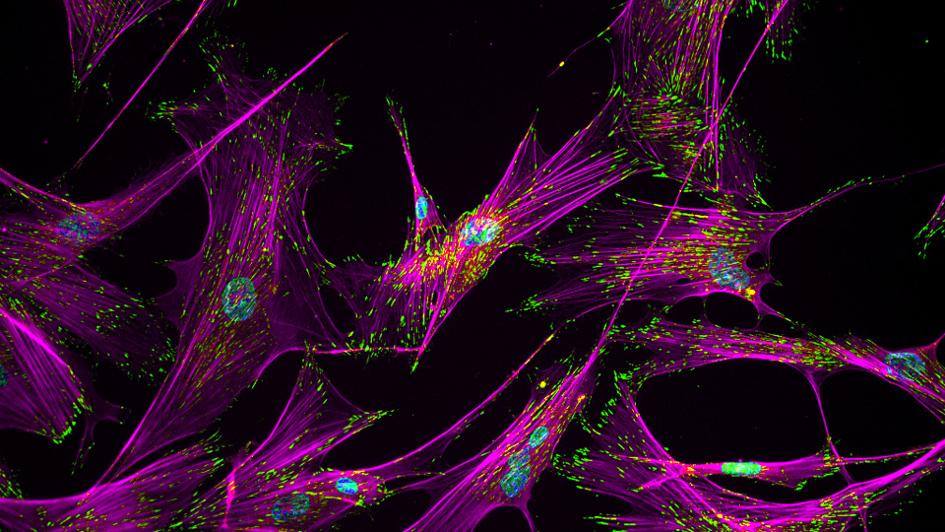July 2022
Targeting cancer-supporting cells boosts immunotherapy response in insensitive tumours

Image: Fibroblasts. Credit: Ankur Singh, Georgia Tech.
Removing a receptor from cancer-associated fibroblasts (CAFs), a feature of the tumour microenvironment, improves the response to immunotherapy of cancers that were previously insensitive to it.
The study, led by Professor Clare Isacke, Head of the Division of Breast Cancer Research at the ICR, used parallel mouse models with CAF-rich and CAF-poor tumours to find that cancers with a high number of CAFs in their microenvironment contained fewer CD8+ T cells. This 'immune cold' ecosystem meant that immunotherapies were less effective.
The team also found the receptor Endo180, which is upregulated on CAFs, was connected to this relationship between the fibroblasts and reduced CD8+ infiltration. When Endo180 is knocked out, mice had more CD8+ T cells in their tumours and a better response to immunotherapy.
Breast and pancreatic cancers are two examples that are often CAF-rich, and they are also resistant to immunotherapy. This research indicates that CAFs, and more specifically the Endo180 receptor, could make good targets to enhance the response of immunotherapy in those for whom it doesn't currently work.